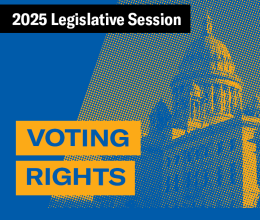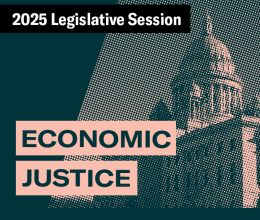
At a time when efforts to impose barriers on the right to vote are percolating across the country, the ACLU of Rhode Island today filed a “friend of the court” brief in support of a lawsuit challenging a policy of the Bonnet Shores Fire District (BSFD) in Narragansett that bars residents from voting if they own less than $400 of property in the district, while allowing thousands of non-resident beach cabana owners – including those owning sixteen square feet “bathroom units” – to exercise the right.
The ACLU’s brief, filed by cooperating attorneys James Rhodes and Lynette Labinger, notes that the Fire District “exercises broad government powers” that include the adoption of “ordinances whose violation may be punished with fines and terms of imprisonment.” The brief argues that in “restricting the right to vote to certain ‘property owners,’ the BSFD follows in a long, justifiably discredited, history in this country and state in restricting the right to vote to a favored class.” Among those excluded from voting are individuals who rent property within the district or are spouses or adult children of title holders.
In providing a short historical overview of the right to vote in the state, the ACLU brief notes that “Rhode Island shares the country’s unenviable history of limiting the franchise on the basis of race, gender, and wealth.” The brief labels BSFD’s restriction on the right to vote to property owners “a throwback to earlier, long-discredited notions of who is entitled to participate in our state and local government.”
The brief argues: “Who gets to participate in an election is one of the most critical threshold questions to ask. The Supreme Court described the right to vote as the one right that is preservative of all others. Sadly, the converse also holds. The restriction on the right to vote is preservative of all other inequalities.”
The brief concludes by asserting: “The charter of the Bonnet Shores Fire District appears caught in a time loop that has ignored the evolution of voting rights in the United States and Rhode Island since it was first enacted in 1932. This relic of a period of widespread disenfranchisement is unconstitutional and cannot endure.”
ACLU of RI cooperating attorney Rhodes said today: “Expanding the right to vote to all people has been a critical multi-generational fight here and across the country. Until every one of our local governments are elected by the people they serve, our work is not done. Participation in free and fair elections, whether it be for president, state legislature or local fire district, is the cornerstone of our democracy.”
